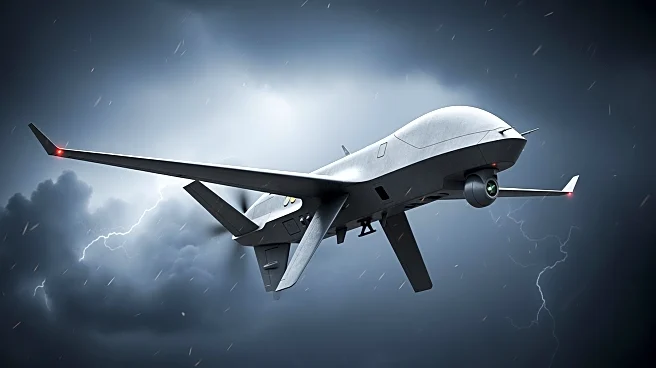What's Happening?
Israel is reportedly preparing for potential military action against Iran, as tensions between the two nations continue to escalate. According to a report by The New York Times, Israel believes that its
previous military engagements with Iran have not fully achieved their objectives, prompting a readiness to resume conflict. In response, Iran is reportedly bolstering its defenses in anticipation of further hostilities. This development comes amid a backdrop of longstanding geopolitical tensions in the region, with Iran's Revolutionary Guard Corps (IRGC) recently demonstrating anti-U.S. and anti-Israel sentiments during a public event in Tehran.
Why It's Important?
The potential for renewed conflict between Israel and Iran holds significant implications for regional stability in the Middle East. Such a development could disrupt global oil markets, given the strategic importance of the region. Additionally, increased military activity could exacerbate existing humanitarian crises in neighboring countries. For the United States, which has historically been an ally of Israel, this situation may necessitate diplomatic interventions or adjustments in foreign policy. The broader international community may also face pressure to respond to any escalation, potentially impacting global diplomatic relations.
What's Next?
If Israel proceeds with military action, it is likely to prompt a range of responses from international stakeholders. The United Nations and other global entities may call for de-escalation and peace talks. Meanwhile, regional powers such as Saudi Arabia and the United Arab Emirates may reassess their security strategies. The U.S. government could face domestic and international pressure to mediate or support its ally, Israel, depending on the unfolding circumstances. Observers will be closely monitoring any official statements or military movements from both Israel and Iran in the coming days.
Beyond the Headlines
This situation underscores the complex web of alliances and enmities in the Middle East, where historical grievances and strategic interests often collide. The potential for conflict also highlights the ongoing challenges in achieving lasting peace in the region, where proxy wars and sectarian divides continue to fuel instability. The role of external powers, including the U.S. and Russia, in influencing regional dynamics remains a critical factor in any potential resolution.











